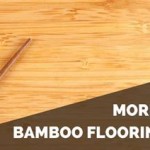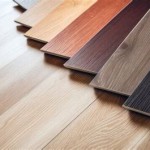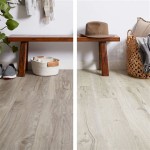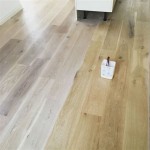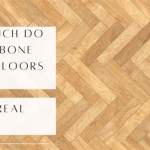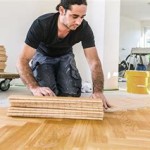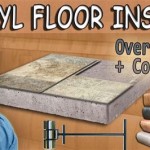Style Your Kitchen With Wood Flooring: A Comprehensive Guide
Wood flooring has been a timeless choice for kitchen spaces, offering a blend of warmth, elegance, and durability. Embracing wood flooring in your kitchen can elevate its aesthetics while enhancing its functionality. This guide will explore the essential aspects to consider when selecting and styling wood flooring for your kitchen, ensuring a space that is both stylish and practical.
Types of Wood Flooring
The first step in selecting wood flooring for your kitchen is choosing the right type. Solid hardwood flooring is made from a single piece of wood and offers exceptional durability and longevity. However, it can be more susceptible to moisture and temperature changes. Engineered hardwood flooring is a more stable option, featuring a plywood base with a top layer of hardwood, making it ideal for areas prone to moisture or temperature fluctuations.
Color and Grain Patterns
The color and grain pattern of your wood flooring play a significant role in shaping the overall ambiance of your kitchen. Light-colored woods, such as oak or maple, create a bright and airy atmosphere, while darker woods, such as walnut or mahogany, exude a more sophisticated and elegant charm. The grain pattern, whether straight, wavy, or knotty, adds character and depth to the flooring.
Finish and Texture
The finish and texture of your wood flooring can significantly impact its durability and appearance. A matte finish provides a more natural and organic look, while a glossy finish enhances the grain pattern and creates a more formal aesthetic. The texture, whether smooth or distressed, can add visual interest and create a unique rustic or vintage charm.
Matching Existing Features
Consider the existing features in your kitchen when selecting wood flooring. The flooring should complement the cabinetry, countertops, and backsplash, creating a cohesive and harmonious design scheme. For example, a light-colored wood floor can balance dark cabinetry, while a darker wood floor can enhance a light-colored backsplash.
Maintenance and Care
Once you have installed your wood flooring, proper maintenance is crucial to preserve its beauty and longevity. Regular sweeping, vacuuming, and damp mopping can remove dirt and debris. Avoid using abrasive cleaners or excessive water, which can damage the finish.
Additional Styling Tips
Incorporate area rugs to define specific areas in your kitchen, such as the dining space or the cooking zone. Choose rugs with patterns or colors that complement the wood flooring and overall design scheme. Add accent pieces, such as a wooden bowl or a rustic chandelier, to enhance the warmth and charm of the kitchen. Plants can add a touch of freshness and vibrancy to the space, complementing the natural beauty of wood flooring.
With careful consideration of these essential aspects, you can create a stylish and functional kitchen with wood flooring that will enhance its beauty and warmth for years to come. Embrace the timeless charm of wood flooring and elevate your kitchen space to the next level.

Hardwood Floors In The Kitchen Yes 1 6 Wood
:max_bytes(150000):strip_icc()/hardwood-floor-in-a-kitchen-1821883-hero-c87cfb43af0648da8673f9cf859cdb16.jpg?strip=all)
Hardwood Flooring In Kitchens Review Pros Cons

7 Tips For Wood Flooring In A Kitchen Bob Vila

Hardwood Flooring In The Kitchen

Invision Hardwood Blog Pros Cons Of Flooring In Kitchens

The Best Kitchen Floor Tile Vs Hardwood

13 Ideas For Upgrading Your Kitchen Floors Extra Space Storage

Pros Cons Of Hardwood Floors In A Portland Kitchen

Best Engineered Hardwood Flooring For Your Kitchen Dining Room
Our Top Picks For Wood Floors In The Kitchen Olde Ltd
See Also
